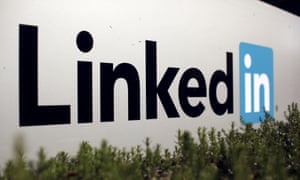Even many of the most ardent supporters would say “No way.” But for Cubs fanatic Brett Taylor, the answer is a resounding “Yes!”
Taylor is the founder of the Cubs-centric Bleacher Nation, a website that’s not affiliated with any team or media partner. Started in late 2008, it is becoming a “must-click” niche destination for tens of thousands of fervent Cubs believers, especially now as the team marches on to what hopefully will be its first World Series in over a hundred years.
The 34-year-old Taylor personifies the quintessential entrepreneur, a risk-taker who chucked a safe but unsatisfying profession to pursue a personal craving as his life’s work.
Taylor’s “passion play,” a term often used to describe such entrepreneurial zeal, will resonate with those making the same journey. Perhaps it will inspire others to forge a similar path and maybe scare off some folks who think being your own boss is a lot easier than working for someone else.
There’s a basic incongruity to Taylor’s Cubs connection. He’s never lived in the Chicago area so his formative youth wasn’t spent in Wrigley Field’s sun-kissed seats. Instead, he’s an Ohio native, who as a kid would catch Cubs games on WGN-TV’s cable channel.
“I lived my whole life in Ohio. But whatever it is about this team that gets its claws in you,” he said.
Even while attending college and getting a law degree from Ohio State University, Taylor’s Cubs fever never broke. Landing an attorney’s job at a major law firm in 2007, Taylor used his limited off-hours to post Cubs analysis and opinions on various sports blogs. In late 2008 he decided to launch Bleacher Nation part-time and in 2011 he left the law firm’s litigation practice to run his Cubs site as a full-time business.
“To be successful, clients want a killer instinct, and I would too if I were a client in high stakes litigation, but it’s not my style,” said Taylor, who preferred the extensive research and legal writing to the rough-and-tumble of trials.
Still, taking the plunge was scary because pursuing your dream doesn’t stop the bills from coming or life from occurring.
“Fortunately, I had squirreled away a fair bit from being a lawyer and we lived modestly,” said Taylor, who asserts his wife, Gretchen, a public school teacher, saved the day with her steady paycheck and access to health insurance benefits for their family.
Like many new business owners, Taylor found just loving his topic wasn’t enough to keep the operation humming. Out of necessity, he became tech support, marketing guru, salesperson and head content provider rolled into one. He runs the business from home in Dublin, a Columbus suburb.
“It’s been a challenge,” he said. “It was a grind getting the site on a stable footing and feeling confident that it was going to be sustainable.”
While no longer practicing law, Taylor’s background plays an important role in Bleacher Nation’s connection to its estimated 135,000 Facebook and 58,000 Twitter followers. Often, his posts are a combo of unabashed Cubbie love and a cold-eyed, legal-eagle assessment of the team.
For example, when anxious fans were losing patience with the Cubs’ transformation plan a few lousy seasons ago, Bleacher Nation took the long view, pointing out that progress was being made throughout the system and predicting that good things were about to happen on the major league level.
Bleacher Nation is not journalism, nor does it feature anywhere near the level of sports reporting dished out by mainstream media. It also doesn’t break news, rarely floats rumors or share insider tips like other sports sites.
“I’m speaking to readers as a fan,” Taylor said.
Bleacher Nation is starting to generate some money for expansion. While declining to give financial results, the site is increasingly running ads from retailers, travel firms, even a recent online advertisement for McCormick spices. Periodically, Taylor seeks to tap into his followers’ collective goodwill by imploring them not to block those ads and reduce the click count.
The extra cash also has allowed Bleacher Nation, which uses freelancers, to add a full-time writer.
Taylor also has tapped his fan base to raise $76,000 in donations for Make-A-Wish Illinois since 2013, according to the charity. Bleacher Nation does this via its annual Trade Deadline Blogathon, where Taylor riffs online about the Cubs for at least 24 hours straight while events unfold around the Major League Baseball trading deadline. By directing Bleacher Nation traffic to a dedicated donation site, the blog marathon rallies users to give to Make-A-Wish Illinois.
Harold Welsch, founder of DePaul University’s Coleman Entrepreneurship Center, says Bleacher Nation is among an emergent number of new stand-alone, sports-related ventures that aren’t aligned with a big company or major league team. His center has advised people starting baseball card stores, golf courses and other sports-minded endeavors.
“We find more people leaving professional jobs and giving it a try,” he said, adding they typically do so in pursuit of that philosophical chestnut “Do what you love and you’ll never work a day in your life.”
For Bleacher Nation there’s a lot of hard work ahead.
Eventually, the upstart brand must find ways to grow. It is doing some podcasting and has dabbled in web TV. Taylor has been a guest on local sports talk shows, so perhaps a radio show is an option.
Who knows?
As the Chicago Cubs are proving this season, anything can happen.
Go to Source

